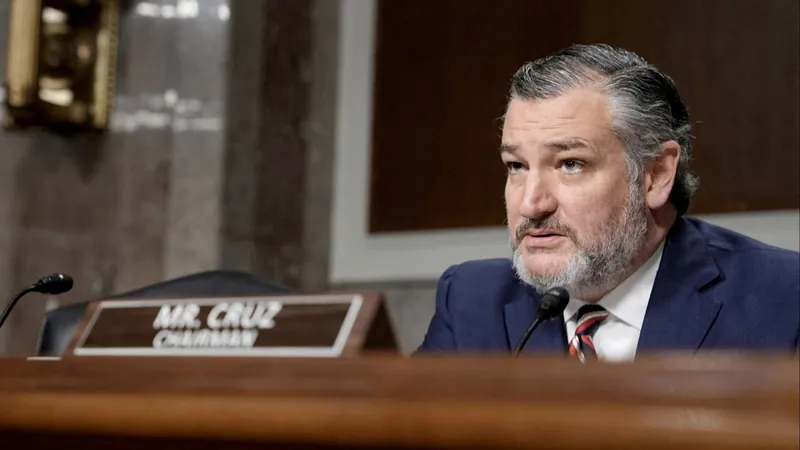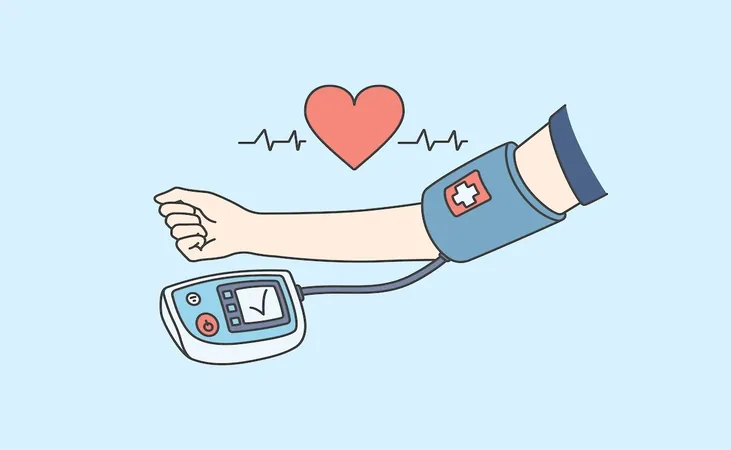
Nurse Practitioners: The Frontline Heroes Battling Measles and Vaccine Hesitancy
2025-04-02
Author: Jacques
As measles cases surge, a significant challenge emerges: vaccine hesitancy. With misinformation spreading like wildfire, nurse practitioners (NPs) are stepping up to address this growing public health concern. According to Jean Wilson, a nurse practitioner and assistant professor at the University of Toronto’s Lawrence Bloomberg Faculty of Nursing, NPs can play a crucial role in combating this epidemic of doubt.
Navigating the Misinformation Minefield
Wilson emphasizes that NPs are uniquely positioned to tackle misinformation. “They have established trusting relationships with their patients and communities. This trust allows them to provide evidence-based information without instilling pressure or judgment — especially critical when parents decide about vaccinations for their children.”
An added layer of urgency comes from the recent fall in immunization rates, attributed to skipped appointments and a surge in vaccine misinformation post-pandemic. The measles vaccine, given in two doses during childhood, offers nearly 100% protection against the disease. However, the rising skepticism around vaccines threatens to derail these efforts.
The Crucial Role of NPs
Listening is key to addressing vaccine hesitancy. NPs strive to engage in respectful and empathetic dialogues, facilitating an environment where patients feel safe to express their concerns. Wilson highlights the importance of this approach, stating, “Parents want to do what is best for their children, and NPs are here to support them in making informed health decisions.”
NPs frequently collaborate with local public health authorities, especially during outbreaks. Their deep roots within communities allow them to effectively encourage vaccination uptake at crucial times.
Empowering Future Nurse Practitioners
The University of Toronto’s master of nursing, nurse practitioner program, equips students with essential skills to handle vaccine hesitancy. Courses cover vaccines and infectious diseases comprehensively — including safety, efficacy, and outbreak protocols. To ensure future NPs are well-prepared, the program includes updates on guidelines from the National Advisory Committee on Immunization (NACI), especially critical during disease outbreaks.
Students delve deep into understanding common concerns about vaccines, gaining knowledge about various vaccine types, dosages, potential side effects, and the importance of preventing communicable diseases. This equips them to respond effectively to questions from concerned parents.
A Global Perspective on Vaccine Hesitancy
The program also broadens students' understanding of global health issues surrounding vaccine accessibility. It critically examines vaccine hesitancy not only locally but also in low and middle-income countries, where barriers to vaccination may be even more pronounced.
Tackling Fear and Historical Context
Vaccine hesitancy isn't solely about misinformation; fear of needles and historical trauma from systemic racism also plays a significant role. NPs learn techniques to alleviate pain and anxiety during vaccinations, such as using comfort holds or distraction methods. Furthermore, by acknowledging the historical injustices faced by certain communities, NPs strive to foster trust and respect, emphasizing the vital role vaccinations play in community health.
In a world grappling with rising measles cases and vaccine skepticism, nurse practitioners stand as vital allies in the effort to educate, empower, and protect communities. Their combined approach of empathy, trust, and evidence-based resources positions them as essential players in safeguarding public health. As health experts continue to combat misinformation, the message is clear: vaccines save lives, and NPs are here to help bridge the gap.









 Brasil (PT)
Brasil (PT)
 Canada (EN)
Canada (EN)
 Chile (ES)
Chile (ES)
 Česko (CS)
Česko (CS)
 대한민국 (KO)
대한민국 (KO)
 España (ES)
España (ES)
 France (FR)
France (FR)
 Hong Kong (EN)
Hong Kong (EN)
 Italia (IT)
Italia (IT)
 日本 (JA)
日本 (JA)
 Magyarország (HU)
Magyarország (HU)
 Norge (NO)
Norge (NO)
 Polska (PL)
Polska (PL)
 Schweiz (DE)
Schweiz (DE)
 Singapore (EN)
Singapore (EN)
 Sverige (SV)
Sverige (SV)
 Suomi (FI)
Suomi (FI)
 Türkiye (TR)
Türkiye (TR)
 الإمارات العربية المتحدة (AR)
الإمارات العربية المتحدة (AR)